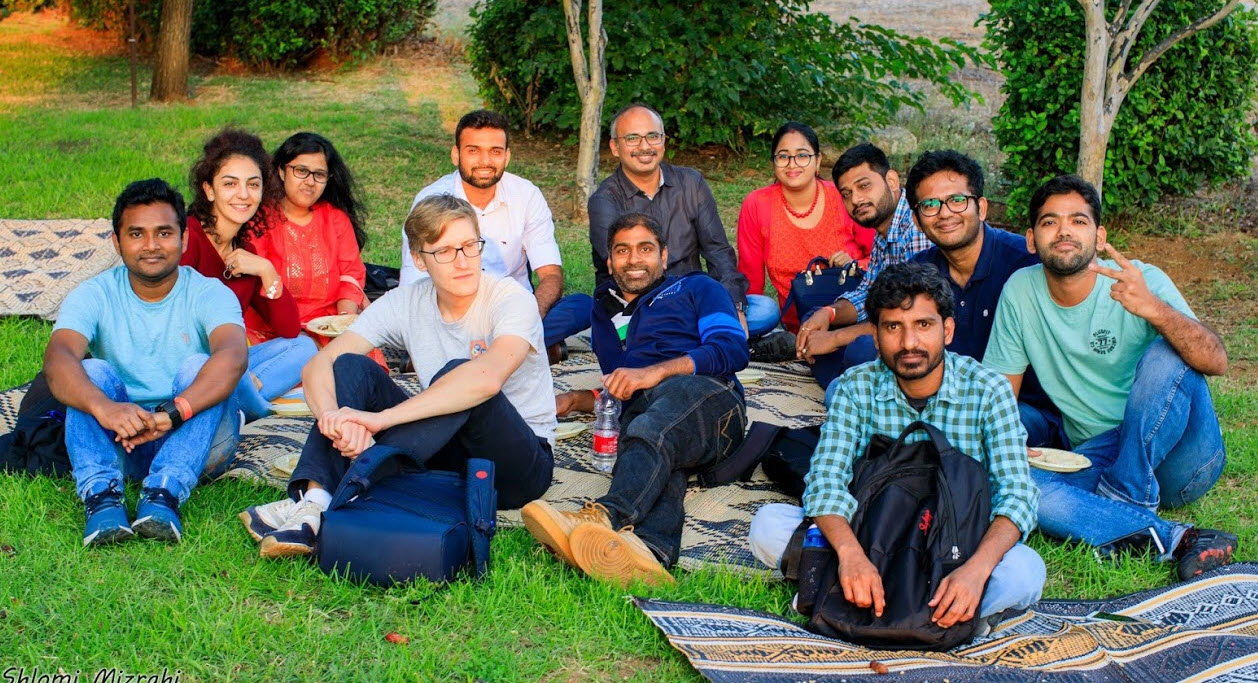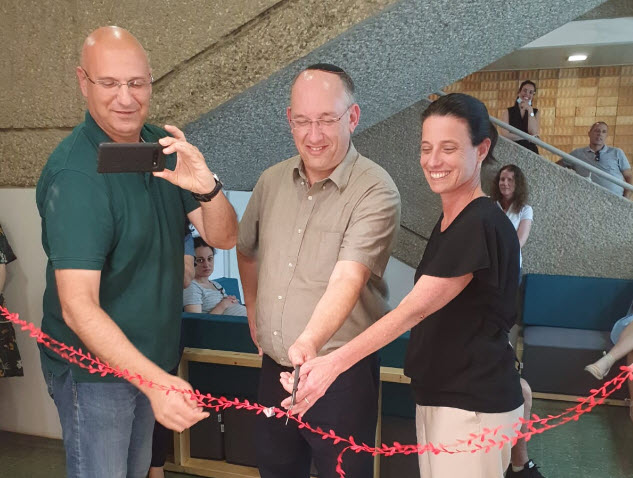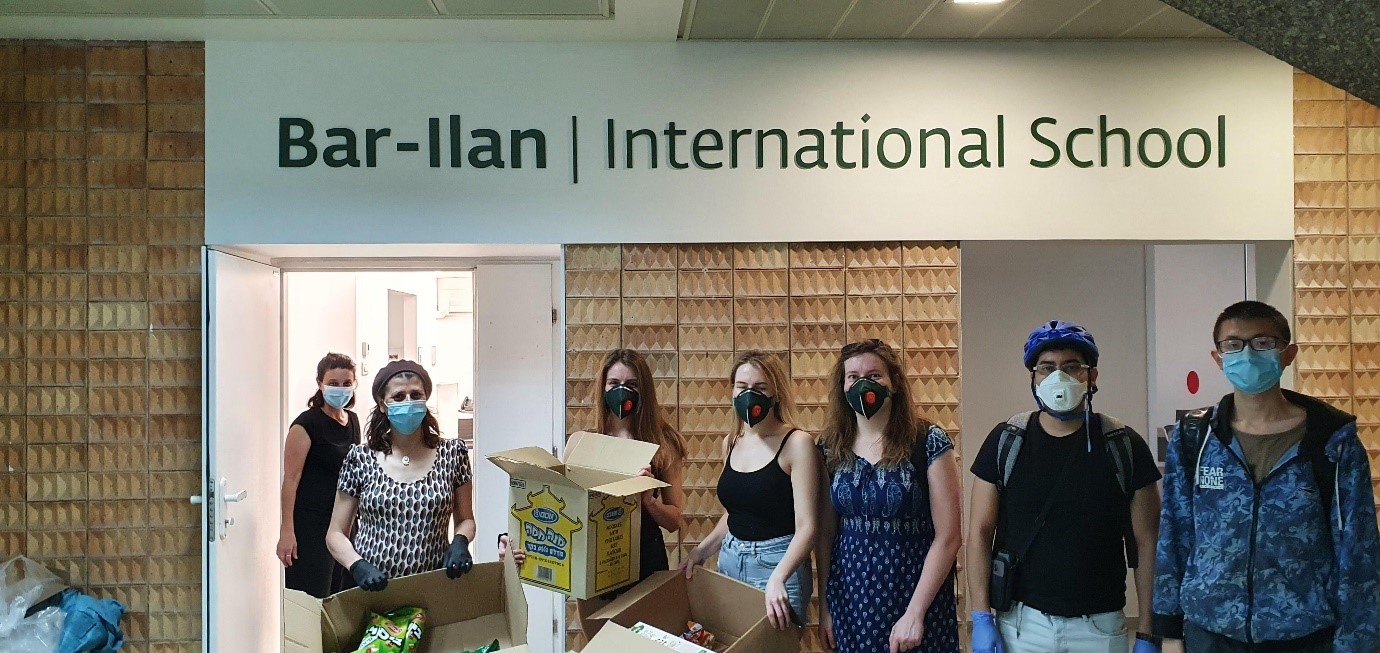When Bar-Ilan University’s new administration was elected in October 2017, five “Visionary Pillars” – Academic Excellence, Impact-Driven Research, Innovative Teaching, Global University, and Vibrant Judaism – were outlined as the driving forces behind expanding and enhancing the university’s timeless goals of globalization and internationalism.
Increasing the university’s competitive edge among institutions of higher education while positioning Bar-Ilan University firmly as a globally-recognized leader in numerous fields were high on the list of priorities.

Opening a dedicated International School, a “one-stop-shop” for international students, faculties, and departments, was part of the plan to make sure the university achieved its mission. Prof. Moshe Lewenstein, deputy president of Bar-Ilan University, took on the role. He formed a committee to define and develop a plan, which formulated the following goals:
- Improve research; for example, by bringing in more international doctoral and postdoctoral students to complement our existing top-quality researchers.
- Develop an education environment in which international and Israeli students can study together and learn from each other.
- Encourage multiculturalism through social and cultural activities as well as student exchange, thus enriching student life on campus.
- Enhance Jewish values and learning.
After months of planning, in May 2018, Bar-Ilan University’s International School became a reality and was fully staffed by February 2019
International School Executive
Prof. Rachel Dekel, who had been part of the planning committee, became the first academic head of BIU’s International School, and Ofer Dahan was appointed executive director.
Between the two of them, they turned a small international office into a fully-fledged International School. Dahan staffed it with people who would focus on providing all the relevant and necessary services for international students while Prof. Dekel worked with the university’s department heads to create a wide variety of first-rate degrees in English.
According to Prof. Lewenstein, Prof. Dekel and Dahan have created a successful, well-respected International School that has helped the university achieve many of its goals in the move towards globalization.
“Their different skill-set is the perfect combination, a winning formula. Each one looks at the International School and its needs from a different perspective and this is what has made the school what it is today,” said Prof. Lewenstein.

(L-R) Prof. Moshe Lewenstein, Prof. Rachel Dekel, and Ofer Dahan
“Ofer has built an excellent team. He has brought together a group of interesting people who work well together and has motivated them strongly. He has put methods in place to achieve our goals and is continuously finding ways to improve. His years of experience, wide network of people throughout the country and internationally, and his ability to take on projects and make them thrive is very impressive,” he said.
“Rachel’s extensive experience in the academic world combined with her strong sense of what students need and what they’re going through in all aspects of their university life have helped to ensure the academic side of the school continues to grow and flourish.
“She has been instrumental in creating and developing new Master’s and PhD programs and a successful system for graduate and postgraduate scholarships, as well as forging new connections and collaborations with other international academic institutions. She has gone above and beyond what was expected,” Prof. Lewenstein said.
Major Growth
Since the International School opened its doors, Bar-Ilan University has had a huge increase in the number of international students. In the first year, there were 400 students mostly from the US. Today, there are 800 undergraduate, graduate, and postgraduate students from around 60 countries enrolled – double in three years, even with coronavirus restrictions.
“We have achieved so much over the past three years,” Dahan said. “More students and universities are aware of the possibility of studying at Bar-Ilan University and the variety and number of degrees have grown. Thanks to Rachel’s determination to develop interesting and often unique degrees with the different departments, we now have five undergraduate degrees and 15 graduate degrees enabling us to bring in even more students.
“We didn’t expect to be so successful in creating so many new degrees in English, which has created a new challenge – to market to and recruit potential students for 20 programs when we’ve budgeted for only a quarter of those – and this doesn’t include recruiting students for postgraduate research,” he said.

However, the marketing and recruitment team, under Dahan’s direction, has managed to find ways around this. Aside from the regular marketing and social media campaigns, the International School has introduced three monthly newsletters that connect potential students, faculty and staff at overseas universities, Jewish organizations and communities, and embassies or consulates all over the world with Bar-Ilan University. A fourth newsletter goes out to current international students informing them of upcoming campus activities, relevant news and programs, and any services we may offer them.
Through Dahan’s vast international network of Jewish organizations, Bar-Ilan’s International School has connected with the World Zionist Organization (WZO), the Jewish Agency for Israel (JAFI), and many more around the world, all of whom promote tertiary education in Israel. His reach extends far beyond the Jewish world and he has forged many relationships with non-Jewish communities and organizations as well.
In addition, the school has international representatives situated strategically all over the world, and they have played a major role in promoting the new programs within the communities in which they work, from Hungary and France to South Africa, from Brazil and Mexico to North America.
New Offices and the Coronavirus
During the first year, the various departments of the International School were based in different buildings on campus. In less than a year, however, everyone was together under one roof.
“When we built the International School’s new offices, we wanted a space in which the staff could communicate, brainstorm, and exchange ideas while providing students with one place to go for all their needs. We moved in on March 8, 2020, and two weeks later, the country went into full lockdown.
“We quickly went from physical to online services and continued to help the students who were left on campus in any way we could,” he said.

The opening of the new offices: L-R: Ofer Dahan, Prof. Moshe Lewenstein, Prof. Rachel Dekel
Surprisingly enough, interest in BIU’s programs didn’t drop and students continued to come to Israel when restrictions allowed it. There was a huge decrease in student exchange, for obvious reasons, but this has been restarted and the opportunities for exchange are promising.
“I think we were very successful in maintaining services and continuing our operations even though most of us were working from home,” Dahan said. “We managed to hold the team together. The university had to let many people go over the past year, but the International School remained intact.
“Bringing everyone back to work and back to ‘normality’ has been gradual and we are returning to the way things were slowly but surely. This has contributed to more streamlined services and a better quality of work. We are, after all, a service-oriented department and we need to work closely together,” he said.
Other Challenges
The most difficult challenge currently facing the International School is changing the university’s online services and systems to English. Although all the services offered by the International School are in English, everything in the rest of the university is in Hebrew from acceptance letters and student apps to payment methods and graduation certificates.
“This makes things incredibly difficult and frustrating for international students and new immigrants, but we are doing everything we can to implement these services in English,” said Dahan.
“Student services are the most important part of the International School and we need to give them everything they need to achieve their goals. Their future is our focus and they are our priority. We are here to make sure their experience at Bar-Ilan University runs smoothly and is interesting, rewarding, entertaining, fulfilling, and successful – until they graduate,” he said.

Providing food for students during Corona lockdown
But it doesn’t end there and with this in mind, the International School recently decided to establish an Alumni Association. A plan for the next three years has been developed and this will be a new focus.
“We believe this will enhance our services and increase our international connections in many different ways, not least of which, hopefully, will be to attract second- and third-generation students from the children of our alumni and forge alliances for decades to come,” Dahan said.
Find out how Bar-Ilan University’s International School plans to increase its competitive edge by reading this article.






